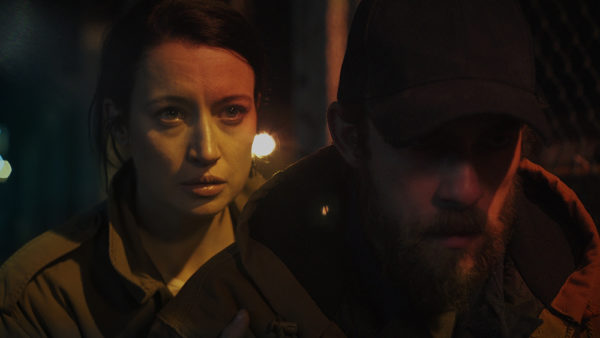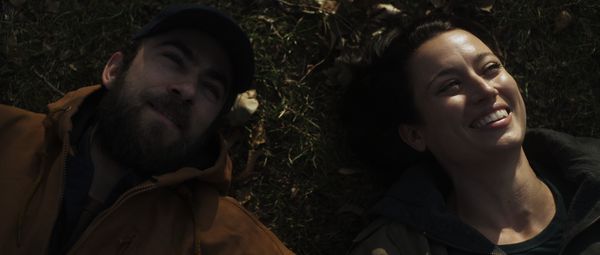
There’s a push and pull interplay at work in When I Consume You, the latest film written and directed by Perry Blackshear.
The film works as a straightforward film about a pair of siblings – Daphne (Libby Ewing) and Wilson Shaw (Evan Dumouche) – who are being stalked by some kind of demon before they attempt to fight back.
When I Consume You is simultaneously the latest in a long line of horror films that use the tropes of the genre as a mechanism through which to examine issues of mental health (in this case, depression and suicide).
The latter approach isn’t a new phenomenon, but it works here because Blackshear’s film is so contained and intimate. The audience is steeped in the siblings’ dread and paranoia to such an extent that regardless of which reading you opt for, it’s an immersive experience.
With that said, When I Consume You won’t be for everyone. This is a morose character drama, shot mostly at night on the streets of Brooklyn. Blackshear excels at creating a damp, bleak mood, populated almost exclusively by Ewing and Dumouche, who both deliver emotionally-wrought performances. There is a third player in the ensemble, David Castille (played by MacLeod Andrews), who shows up late in the film as the embodiment of all of the Shaws’ fears, but for the most part, When I Consume You is focused on the co-dependent, potentially unhealthy relationship between brother and sister.
The film opens with Daphne as lead: she’s introduced spitting a bloody tooth into the sink and taking a long shower after what has clearly been some kind of traumatic experience. Wilson appears shortly thereafter, but he seems less capable and grounded than his sister. At times it seems like Daphne is more of a parent; she looks after him, and she’s also interested in adopting a child. Wilson, by comparison, seems less equipped for real life: he’s lost in a world of D&D games, barely keeping his plants alive and prone to burning the shirt he needs for a job interview with the iron.
Everything changes when Wilson discovers his sister’s dead body (18 minutes into the film, so that’s not a huge spoiler). He chases a shadowy figure from the crime scene, but the death is ultimately ruled a suicide. This happens early in the film and it’s confronting: suddenly When I Consume You has lost its lead and, for a brief period, the film becomes unmoored as Wilson struggles with his grief and (possibly) his own suicidal thoughts.

Then Daphne returns (in a very spooky and unnerving scene) and Wilson finds a cause to live for. Using his sister’s hidden journal, he embarks on a quest to track down the demon who killed his sister. So he begins training to build up his strength and stamina at the behest of Daphne’s ghost, who becomes his cheerleader and coach.
These activities comprise the majority of the When I Consume You, which – like Blackshear’s other films – is far more interested in the human drama of its damaged characters than the supernatural elements. That’s not a knock, though. While at times the film does get lost in its bleak examination of the siblings’ lives, Ewing and Dumouche are doing exemplary work.
For audiences hungry for something more demonic, the film’s unhurried pacing and penchant for slipping into flashback can make for a long, winding road to the satisfyingly violent confrontation of the climax. Individuals who are able to set aside expectations of demonic battles and go in prepared for grief, trauma and (possibly) redemption, however, will find a lot to admire about this grim character study. 3.5/5
When I Consume You made its US debut at Brooklyn Horror Film Festival